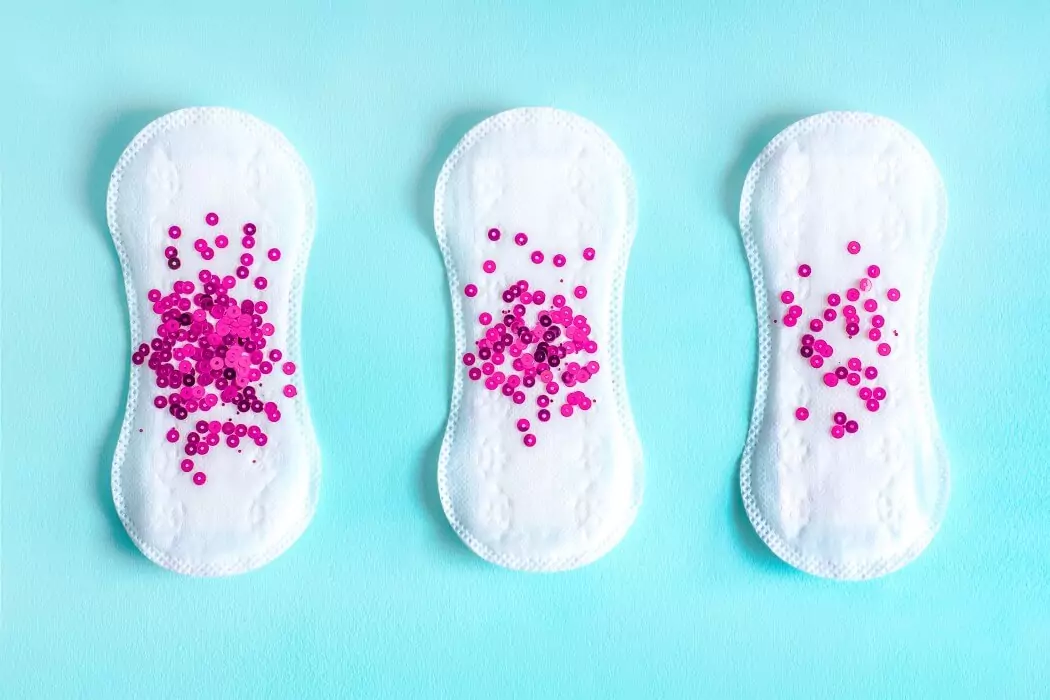Are you aware of the potential side effects of using menstrual pads? While they may seem like a convenient and widely used option for managing your period, it’s important to understand the possible risks involved. In this article, we’ll explore the side effects that can arise from prolonged use of menstrual pads and how they can impact your health.
From bacterial overgrowth to the risk of toxic shock syndrome, we’ll also look into the potential dangers and provide insights on alternative menstrual care products that may be safer for you. Stay informed and make the best choices for your well-being.
Contents
4 Common Side Effects of Using Sanitary Pads

While sanitary pads are a common and convenient period product, there are some potential side effects and considerations to be aware of:
Skin irritation and rashes: The materials used in some pads can irritate sensitive skin, leading to itching, redness, and discomfort. This can be more likely with scented pads or those containing harsh chemicals.
Toxic chemicals: Some research suggests that certain chemicals used in the production of pads, such as dioxins and volatile organic compounds (VOCs), may be harmful to health. However, the long-term effects of exposure to these chemicals are still being studied.
Increased risk of infections: Wearing a pad for too long, especially if it’s full or absorbent, can create a warm, moist environment that favors the growth of bacteria and yeast. This can increase the risk of infections such as vaginitis and urinary tract infections.
Environmental impact: Conventional pads are often made from non-biodegradable materials and can contribute to landfill waste. Additionally, the production process can have a negative impact on the environment.
Tips to Minimize Side Effects
1. Choose the Right Menstrual Pads for Your Needs
When it comes to minimizing the side effects of using menstrual pads, selecting the right product is crucial. Here’s what you can do:
- Understand Your Flow: Every woman’s menstrual cycle is unique, so it’s important to pay attention to the flow, duration, and symptoms of your period. This will help you choose the appropriate absorbency level for your needs.
- Consider Different Options: There are a variety of sanitary pads available in the market that cater to different flow needs. Whether you need extra coverage for overnight protection or prefer ultra-thin pads for light-flow days, there’s a menstrual pad for every type of period.
- Opt for Dioxin-Free Sanitary Napkins: Dioxin is a chemical that can be present in some sanitary pads. To reduce potential risks, consider using dioxin-free sanitary napkins, which are made without this harmful substance.
2. Change Your Menstrual Pad Regularly
To maintain good menstrual hygiene and minimize the risk of infections, it’s important to change your menstrual pad regularly. Aim to change your pad every 4-6 hours, or more frequently if needed. This will prevent the buildup of moisture and bacteria, reducing the risk of vaginal infections.

3. Maintain Proper Hygiene during Menstruation
Proper hygiene practices during menstruation are essential for minimizing side effects. Clean your underclothes regularly and dry them properly, preferably in sunlight, to prevent the growth of bacteria. Maintain regular hygiene by cleaning your vaginal area with mild, fragrance-free soap and warm water. To prevent the risk of infections, avoid sharing menstrual hygiene products with others.
Conclusion
By exploring safer alternatives to conventional sanitary pads, you can address any concerns you may have regarding potential side effects. Options such as organic tampons and pads, reusable cloth pads, menstrual cups, and period panties offer a range of benefits. With the wide range of options available, you can make an informed decision that supports your health and well-being during your menstrual cycle.
Frequently Asked Questions
Which pads are healthiest?
Rael Organic Cotton Cover Pads, The Honey Pot Company Clean Cotton Regular Absorbency Pads, Stayfree Ultra Thin Overnight Pads with Wings, Genial Day Hypoallergenic Regular Flow Pads, and Always Extra Heavy Overnight Maxi Pads with Flexi-Wings are considered some of the healthiest options for sanitary pads.
Can wearing a pad too long cause problems?
Yes, wearing a pad for too long can create a moist environment that promotes bacterial and fungal growth, leading to infections such as yeast infections. It is important to change pads regularly to maintain good hygiene.
Which pad is best for periods without side effects?
Gynecologists recommend using cotton pads, particularly organic cotton pads. They are naturally soft, absorbent, and resist bacterial and fungal growth caused by excessive moisture. Organic cotton pads are a hygienic choice that minimizes the risk of side effects typically associated with synthetic materials.
I am a medical student with experience and interest in Women’s health and well-being.